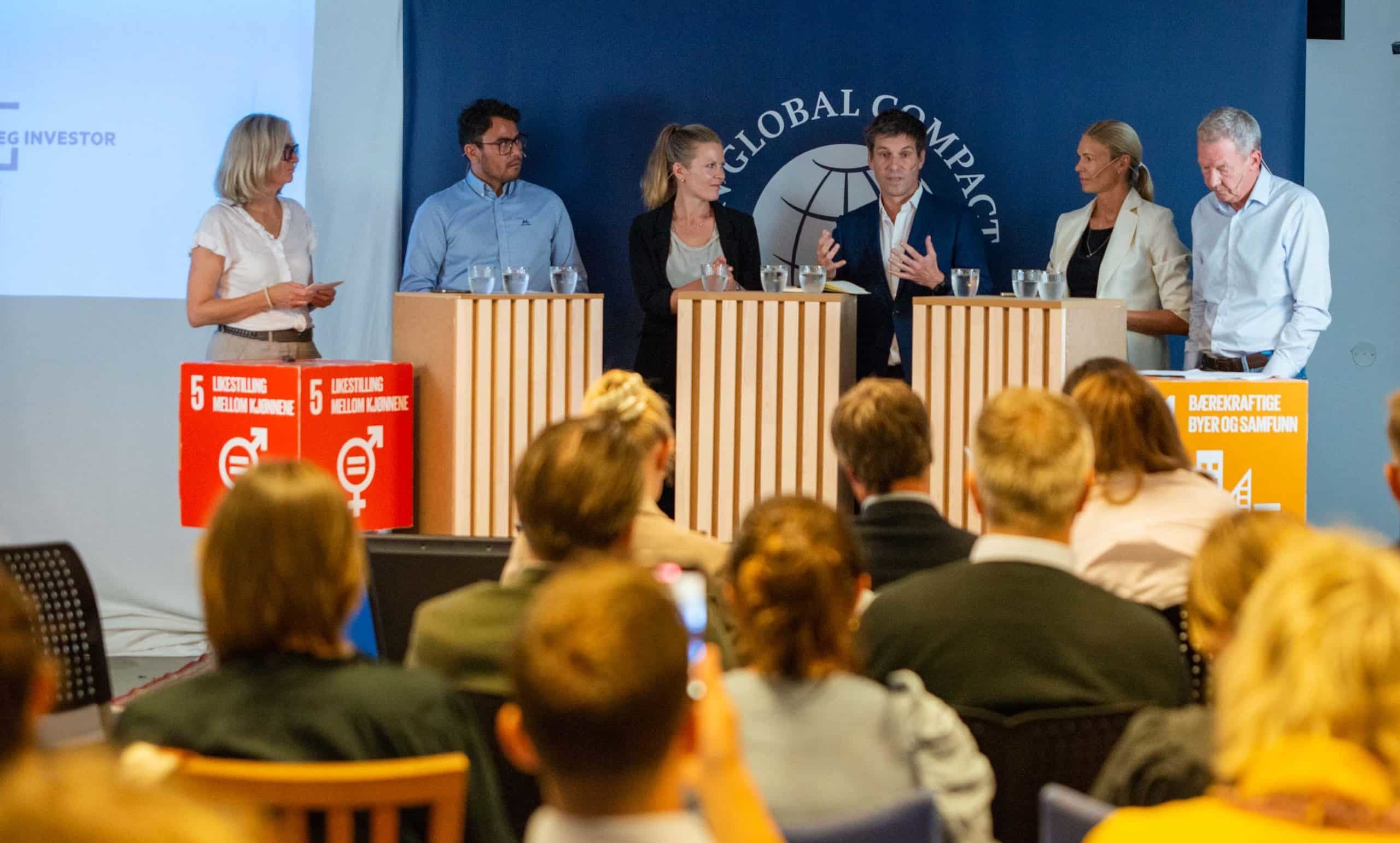

During a heated debate in Arendalsuka, the issues regarding sustainability claims were raised by both the financial sector itself and academia.
Are too many shady players in the financial sector claiming to be sustainable without explaining how? And should we even use the word sustainable about financial products?
“The discussion about sustainable finance shows signs that the purpose of the sustainability work is a bit unclear,” Lars Erik Mangset, Head of Sustainable Finance in Grieg Investor, said at the start of the debate. “Some companies are exaggerating when it comes to sustainability, and the possibilities of measuring ESG efforts are too poor because it counts more on policies than the real-world impact.”
The debate was hosted by Grieg Investor and was moderated by Anne Kvam, the director of Position Green Advisory.

Heidi Finskas, VP of Corporate Sustainability in KLP, noted that while greenwashing is happening in the financial sector, the intentions are good.
“It’s important to have this discussion, and greenwashing is happening in this industry as in other industries. But the intentions are genuine – these companies want to make the world a little better and also handle climate risks in their portfolios,” Finskas said.
Karin Greve-Isdahl, EVP of Communication, Sustainability & Business Policy at Storebrand, explained that greenwashing is high on the agenda at Storebrand.
“Sustainability is a vague term, and we have worked on how we talk about it. We have gone through all our websites to ensure we don’t promise too much and strive for best practices. All the major companies talk about this, and now the regulatory authorities follow suit – and that’s a good thing for the serious companies.”
The debate got heated when Espen Henriksen, Associate Professor at BI Norwegian Business School, doubted the intentions of companies like Storebrand.
“It’s quite interesting to listen to Storebrand, who make promises about how your savings can do good – and give you great returns on your money. That’s the impression they want to give. But in reality, these assets are transferred from everyday people who want to do good to the asset managers – because they charge way too much for these funds,” Henriksen said.
At the debate, Idar Kreutzer, the CEO of Finance Norway (the industry organization for the financial industry in Norway), warned Henriksen about raising suspicion about financial companies that aim to operate profitably.
“This is a very important discussion. But is there anyone here who thinks we will manage to make the energy transition without running a profitable operation? Let’s not raise unnecessary suspicion about this.”
A key issue raised by Mangset in Grieg Investor is the lack of quality in ESG data. This is a huge problem when aiming to be more specific in measuring companies’ efforts.
KLP’s Heidi Finskas explained that it’s impossible to make independent investment decisions based solely on the existing data.
“We don’t rely on the ESG data because both the access to data and the quality is too poor. We are, of course, working with the available data and are working on getting more, but it’s still not good enough to make investment decisions based on this alone.”
Kreutzer in Finance Norway pointed on three problems with the ESG data:
Mangset in Grieg Kapital noted that the financial sector could help companies in the right direction by either investing and influencing them as shareholders or excluding companies from their funds.
Mangset got support from Karoline Andaur, the Secretary General of The World Wildlife Fund (WWF) in Norway. She also noted that the impact of the financial sector on sustainability could help move the pedal in the right direction.
“Yes, there is a lot of greenwashing in the financial sector and within so-called green funds, but it matters that you, the financial sector, are talking about this. If I want to talk to the Prime Minister or the Minister of Finance about this, they will ask me to talk to the Minister of Climate and the Environment. But you could take a role by talking about this in settings where people like me don’t have access,” she said.
Kim Gabrielli, the director of UN Global Compact Norge, also noted that the discussion is vital but that we need everyone on board for the journey ahead – including companies who are large polluters today.
The panel all agreed that the regulations coming from the EU, like the EU taxonomy, are a good thing because they will increase the demand for sustainable solutions.
“We are headed in the right decision, but it’s still a long journey ahead,” KLP’s Finskas said.